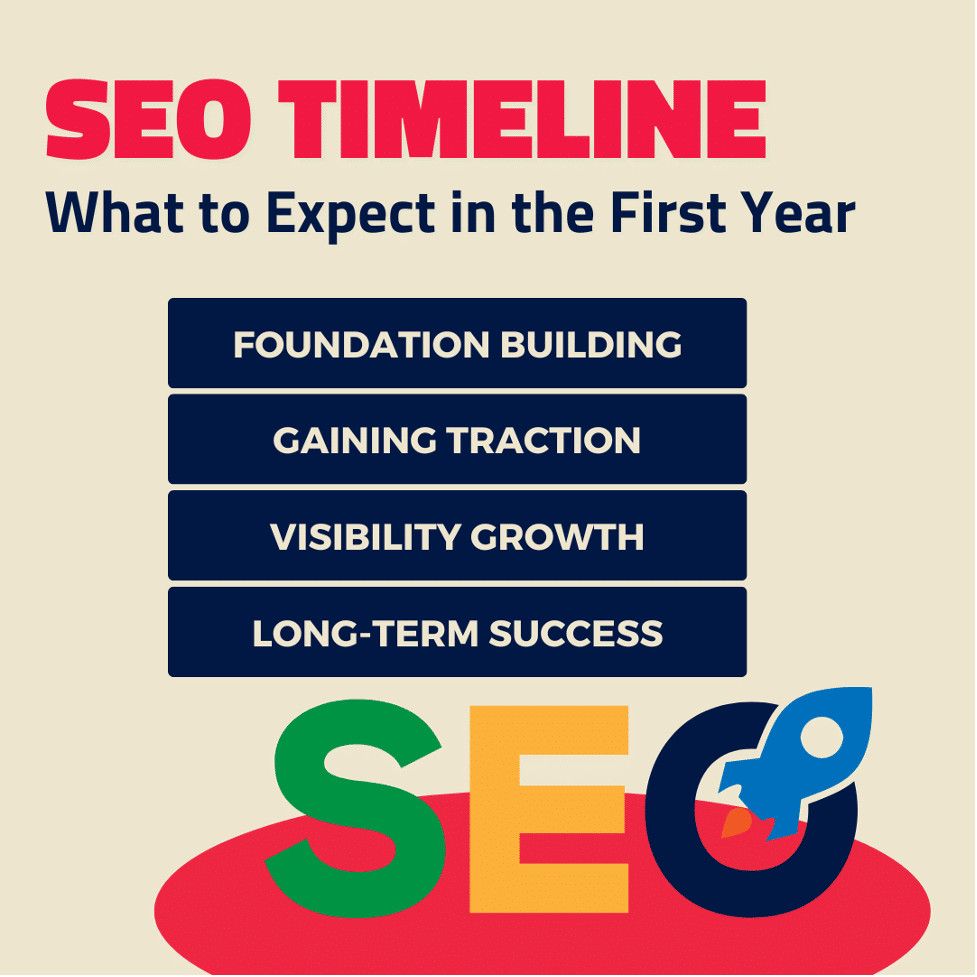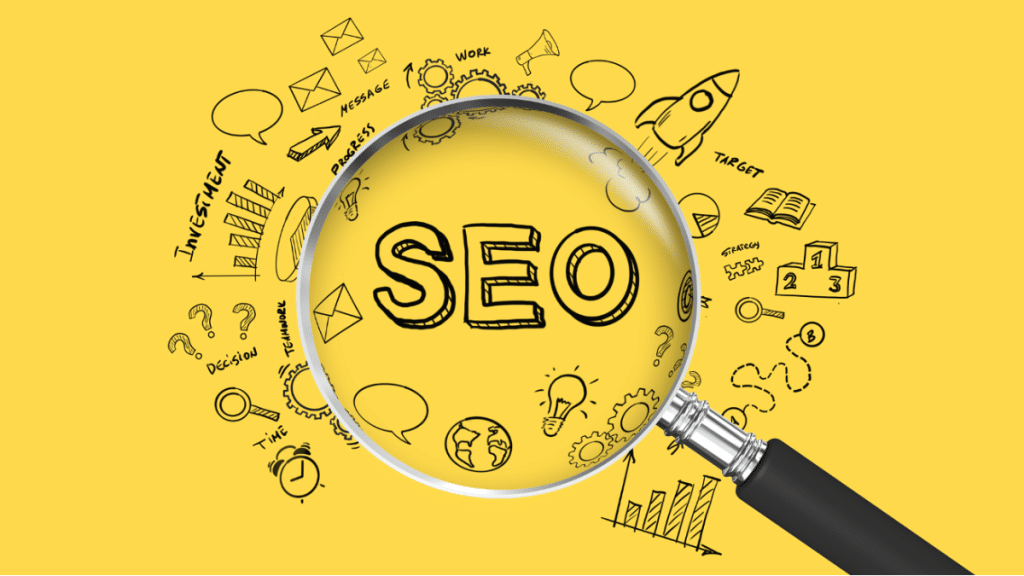Running ads can bring short-term traffic, but SEO builds organic visibility that keeps bringing customers—without paying for every click. Search engine optimization (SEO) isn’t just another marketing strategy; it’s the backbone of sustainable growth in today’s digital world.
Businesses that embrace SEO position themselves as industry leaders, attract high-intent customers, and maintain a steady flow of organic traffic. Investing in SEO keeps a brand competitive and above the radar even as market patterns change and algorithms change in search engines.
The Role of SEO in Business Growth
A well-executed SEO plan assists companies in attracting, engaging, and converting customers in the long term. Contrary to paid advertising, which returns results only as long as a budget is available, SEO keeps on producing traffic years after the initial investment. Search engines prefer quality content, a well-optimized website, and quality backlinks. Companies that focus on these factors see a consistent rise in organic traffic, resulting in improved brand awareness and credibility.
A Link building company plays a major role in this process by strategically acquiring links from reputable sources. They analyze your industry, competitors, and content to build a network of backlinks that enhance your online credibility. They don’t just chase random links; they focus on securing placements that drive real traffic and engagement.
It is more than a marketing strategy, as it is woven into all facets of online presence, from site architecture to content planning. It follows the behavior of consumers, reaching out to potential buyers where they are already looking for answers. In contrast to interruptive advertising that breaks into a consumer’s experience, SEO organically links businesses with users looking for solutions, allowing the conversion process to be easier and more efficient.
Increased Online Visibility and Brand Authority
Consumers use search engines to locate the best services and products. When a company appears at the top of search engine results pages (SERPs), it conveys authority and trust. Such visibility not only generates traffic but also enhances brand credibility.
Companies that are atop search results have higher conversion rates as users trust companies appearing atop pages. A well-executed SEO plan, combined with a sustainable content marketing strategy, creates authority within an industry. Search engines favor companies that offer relevant, well-structured, and optimized content by ranking them higher.
For physical stores, local SEO is crucial for drawing local customers. With the optimization of Google Business Profiles, the achievement of local backlinks, and location-based keyword utilization, businesses get listed in “near me” searches, boosting foot traffic and local brand recall. Businesses that are optimized for local SEO pull in purchase-ready customers, leading to greater conversion rates compared to other marketing initiatives.
Cost-Effective Marketing with High ROI
SEO is the most budget-friendly digital marketing technique. Although pay-per-click advertising yields quick results, it requires an ongoing budget. As soon as the expenditure halts, so does the traffic. SEO, however, yields long-term results with higher organic rankings, guaranteeing a constant flow of users without further expenditure.
Compared to traditional marketing, which comes with huge budgets for TV, radio, or print ads, SEO yields quantifiable outcomes for lower prices. Compared to social media ads, whose audience targeting may shift due to algorithmic changes, SEO yields longer-term stability and reliability. Businesses employing SEO in their marketing efforts reduce their dependency on pay-per-click advertising while continuing to generate quality traffic to their website.
A successful SEO strategy also positively affects other online marketing strategies. Top-performing content drives organic traffic, and solid backlink strategies increase domain authority. Collaborating with a link-building agency can also further enhance an SEO strategy by acquiring high-quality links that can increase credibility and visibility. Backlinks are votes of confidence, which tell search engines that a website is credible and trustworthy, hence ranking higher over time.

Adjusting to Evolving Search Engine Algorithms
Search engines always want to ensure that the algorithm updates bring relevant and quality content to their users. If companies do not have an SEO strategy, they will be out of sight whenever such updates show their ugly face. If companies keep abreast of such changes and do something about it, they will always be ahead in the race.
Keeping content fresh makes it relevant to search intent. With more people searching on their cell phones, mobile-first indexing is becoming another key ranking signal. If companies maintain short loading speeds, mobile-responsive sites, and smooth user experiences, they will not experience ranking losses or customer attrition.
Google algorithm updates have placed more emphasis than ever on content quality, authority, and user experience. Techie types that focus on SEO, structured data, and secure browsing tend to fare well in more stable ranking environments. AI-enabled search features continue evolving, which implies businesses need to consider optimizing for voice search, featured snippets, and conversational searches.
Competitive Advantage in the Digital Age
A good SEO presence allows small businesses to go head-to-head with large brands. Companies that invest time and resources in keyword research, high-quality content, and technical SEO rank higher than their competitors who do not emphasize these strategies. SEO provides a level playing ground for smaller businesses to compete against industry giants.
By understanding consumer search behavior, businesses can tailor their content to suit their audience. With keyword research, businesses can understand what searchers want, hence being able to create content that answers them directly. This boosts not only organic traffic but also engagement and conversion rates.
SEO increases trustworthiness. The more customers see the name of a business on the very first page of search results, the more they think that it is reliable and expert. SEO combined with other online marketing strategies such as social proof and customer reviews adds to a brand’s reputation and trust.
Improving User Experience and Website Performance
SEO concerns itself with keywords and backlinks to an extent. Enhancing user experience (UX), however, has its own importance. Search engines will usually be impressed with sites that load fast, are mobile-friendly, and have uncomplicated navigation.
An optimized website minimizes the bounce rate while increasing the likelihood that visitors are going to browse through several pages. From the obvious calls to action, lucid content, and smooth navigation, the site improves as a channel for visitors to feel longer, which may make the search engines think that the site has value.
The result will be an improvement in the rankings, leading to increased conversion rates.
A bad website experience can drive away customers, even if they happen to find such a business during their search. Slow server responses, messy navigation, and broken links take a toll on user experience and the site’s SEO status. An investment in technical SEO optimization like image optimization, the optimization of server response times, and content organized to be easily read optimizes the usability of websites along with users’ experiences.
Conclusion
A proper SEO plan offers companies long-term success through increased online presence, credibility, and sustainable growth. In contrast to short-term marketing strategies, SEO sets the stage for ongoing customer acquisition. Investing in SEO ensures that companies remain relevant within a competitive digital environment, where they can attract, engage, and convert customers long into the future. The moment to invest in SEO is now—future-proof your company and position it within the constantly changing online marketplace.
FAQs
1. How long does it take to see results from an SEO strategy?
SEO delivers long-term results, typically showing significant improvements within 4 to 6 months. However, competitive industries may require ongoing optimization for sustained growth.
2. Why is link-building essential for SEO success?
High-quality backlinks signal authority to search engines, boosting rankings and credibility. Partnering with a reputable link-building company accelerates this process by securing valuable links.
3. How do search engine algorithm updates impact my SEO strategy?
Algorithm updates refine search rankings, favoring high-quality, relevant content. A proactive SEO approach ensures adaptability, preventing ranking drops and maintaining visibility.

